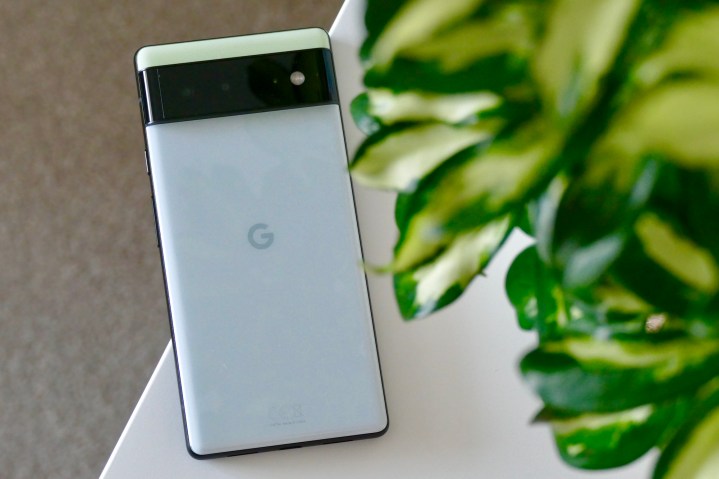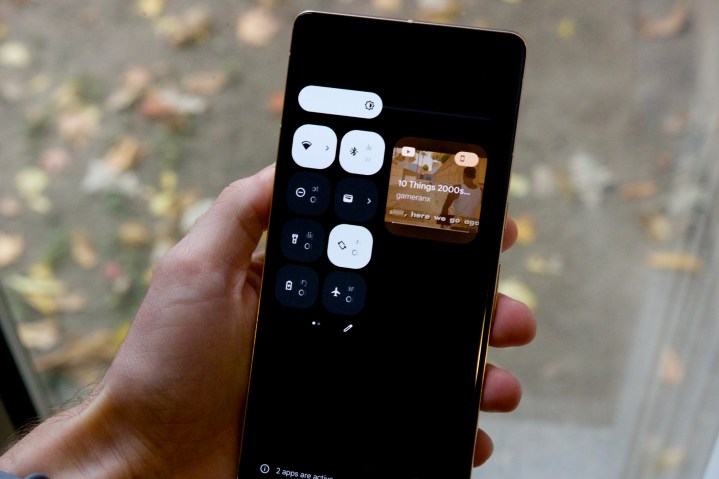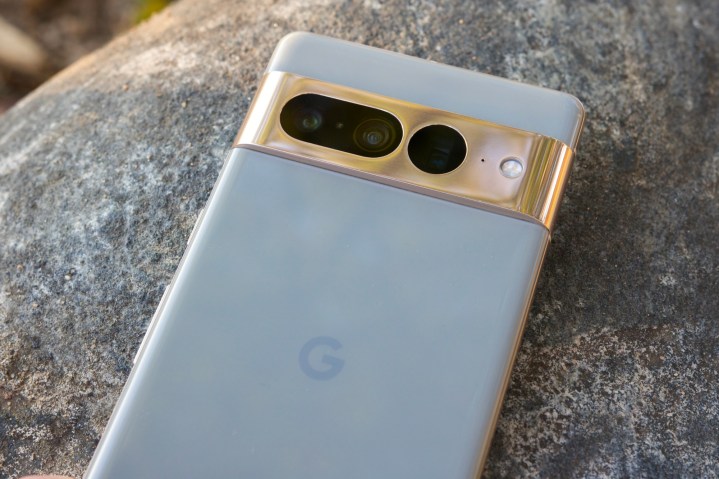Google’s Pixel 7 and Pixel 7 Pro smartphones have landed. The big announcement came and went, the phones are available online and in stores for purchase, and full reviews are now live all over the internet — including ours.
If you’ve read our Pixel 7 review or Pixel 7 Pro review, you’ll notice that Digital Trends’ Senior Writer Andy Boxall and myself were both fairly critical of the phones. There are things the Pixel 7 and 7 Pro do incredibly well, and they come very close to being some of the year’s best smartphones. But getting very close isn’t the same as going all the way.
Google had its work cut out for it

Last year’s Pixel 6 lineup was a massive shift forward for the Pixel series. Google used the Pixel 6 and Pixel 6 Pro to usher in a brand new design language, its first in-house Tensor chipset, new camera sensors, and its Android 12 software with its fresh Material You design. And a lot of it worked incredibly well. We said the Pixel 6 Pro was “the dawn of a fantastic new era for Google phones” in our review last year, which featured ample praise for its outstanding camera performance and robust photo-editing features.
But perfect phones the Pixel 6/6 Pro were not. In the weeks and months following their release, it didn’t take long for people to notice that such big year-over-year upgrades also brought unwanted consequences.
What sort of consequences? Where to begin?
Numerous Pixel 6 owners reported that the adaptive brightness of their screen would randomly increase/decrease dramatically for seemingly no reason. Others had an issue where music and other playing media would pause on its own. There were also rampant complaints about Android Auto connection issues, a flickering problem with the display, and a healthy dose of random device reboots.
And those were just the software bugs. The Pixel 6 series was also lambasted for having poor cellular connectivity, a sluggish fingerprint sensor, and lackluster battery life. Things got so bad that prolific names in the tech review space, like MKBHD, made dedicated videos calling out these problems.
It ended up being a rough situation, but at the very least, it gave Google very clear problems to address as it worked on the Pixel 7.
The Pixel 7 is a phone with unresolved problems

At least, that’s what should have happened. To Google’s credit, the Pixel 7 and Pixel 7 Pro do improve things compared to the Pixel 6 and Pixel 6 Pro. The designs are more refined, the cameras are even better, the displays are improved, and there are more software goodies to play with. They’re all great upgrades! But what about fixing the very real problems of the Pixel 6 series? That’s where things get frustrating.
My time with the Pixel 7 Pro has been challenging, to say the very least. The fingerprint sensor is still slower than it should be, battery life remains mediocre, and the software bugs are just as prevalent as ever. From games scaling incorrectly to Quick Settings icons not displaying how they should to YouTube videos playing the video with no audio — it’s been a rough experience.

It seems like my Pixel 7 Pro has had a worse go of it than some of my colleagues and peers, but I’m clearly not alone in encountering persistent software bugs. Andy’s Pixel 7 has had choppy scrolling animations in Google Discover, and he’s also found audio issues in the YouTube app. There have been multiple reports of bugs crippling the Pixel 7’s setup process, jittery scrolling performance, camera focusing problems, freezes/reboots … the list goes on.
Just like last year, it isn’t as easy as saying the Pixel 7 and 7 Pro are buggy phones. Some Pixel 6 owners didn’t have any issues, while others were plagued with relentless bugs. The same is true of the Pixel 7. Some people have clearly had very good experiences with Google’s latest phones — and that’s great! But it’s just as evident that getting a smooth, reliable device with the Pixel 7 isn’t guaranteed. I want to be able to wholeheartedly recommend the Pixel 7 and Pixel 7 Pro, but when buying one leaves it up to chance to decide if you’re getting a good phone or not, that becomes a serious roadblock.
This isn’t anything new for Google

If these inconsistencies with the Pixel 7 and 7 Pro were a one-time fluke, I’d be much more inclined to give Google a pass. No company is perfect, and everyone drops the ball at some point. But the larger issue at hand is that Google’s inability to iron out these quirks has been ongoing for years.
The Pixel 2 XL had a notoriously poor display that was infamous for quick burn-in and bland colors. The Pixel 3 lineup was plagued by bad RAM management. The Pixel 4 was a great phone held back by abysmal battery life. With every Pixel release, it seems like something rears its ugly head that keeps the phones from achieving true greatness.
Ultimately, I’m left scratching my head and wondering how this keeps happening. Pixels are often great smartphones — excellent, even. But when Google has a well-documented history of continuing problems with its smartphone family, and is still ironing out kinks in its seventh generation with the Pixel 7 series, these problems become harder to look past when they keep happening year after year.

Google isn’t a small company. It has a market cap over $1.3 trillion with no shortage of time, talent, and money to create the best smartphones it can. But despite all of that, Pixels often end up feeling like products from a scrappy startup. One year it’s a bad display panel, another it’s inconsistent RAM performance, another it’s unforgivably short battery life, and another it’s no-stop software bugs.
Making phones is hard, I get that. But for a company of Google’s size and stature, it’s extremely frustrating that recommending a Pixel 7 or Pixel 7 Pro still comes with a huge asterisk. I want these to be phones I can tell friends and family they should buy and have zero hesitation about it. But I can’t. We were already talking about the lack of trust with the Pixel lineup last year, and the fact that we’re having the same conversation again with the Pixel 7 doesn’t instill much confidence.
Editors’ Recommendations




